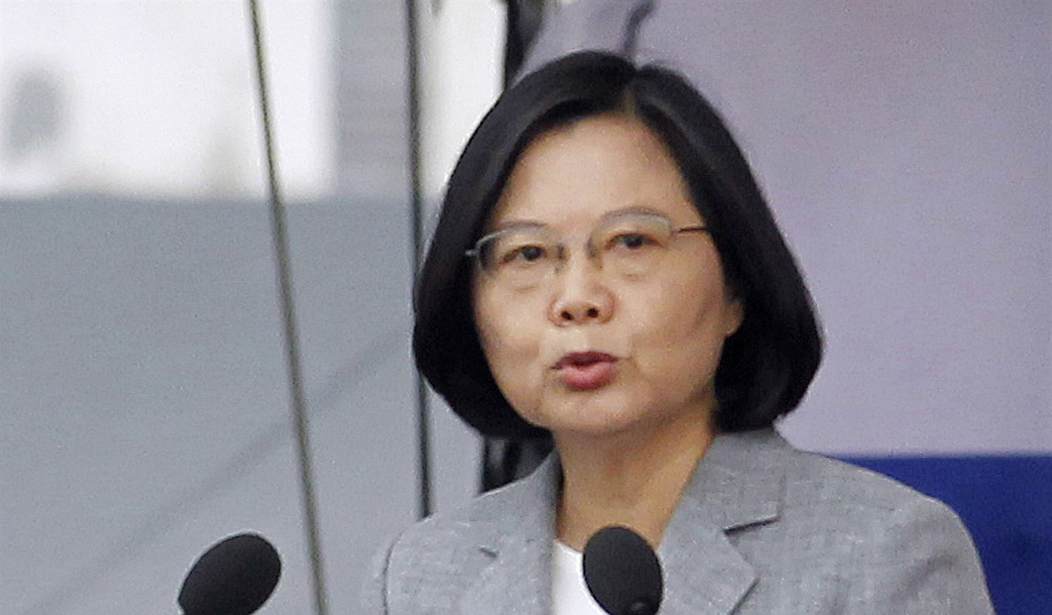Something unusual just happened in the wake of the latest round of elections in Taiwan and we should probably be paying closer attention to this. Following the announcement of the election results (which they somehow managed to tally in a single day, though that is now apparently impossible in the United States), President Tsai Ing-wen immediately stepped down as the head of the Democratic Progressive Party (DPP), the ruling party on the island, for now, at least. She’s not leaving office as the President since she wasn’t up for reelection this week. But her party suffered multiple losses in local and municipal mayoral elections. These included a loss to the Kuomintang (Chinese Nationalist Party) candidate for Mayor of Taipei, the island’s largest city, and an office that has traditionally been a launching point for Taiwanese politicians seeking the presidency. The implications of this apparent shift in public opinion could be very significant. (Wall Street Journal, subscription required)
Taiwan President Tsai Ing-wen relinquished her seat as head of the island’s ruling party after it lost several key contests in local elections Saturday, foreshadowing political uncertainty amid heightened tensions with China.
In a brief speech after the results came in, Ms. Tsai blamed the ballot-box losses on shortcomings in the Democratic Progressive Party’s approach to local politics. “There is still a gap between people’s expectations and our grassroot work,” she said.
Ms. Tsai’s resignation as party leader came after opposition candidate Chiang Wan-an won a three-horse race for mayor of Taipei, a post that in the past has been a steppingstone to the presidency.
The incoming Mayor of Taipei, Chiang Wan-an, interestingly claims to be a direct descendent of Chiang Kai-shek, who led his people to Taiwan in 1949 after the Chinese Communist Party took control of the mainland. It’s unclear whether that played any sort of role in his victory.
The reason that this development should be of interest to the United States and our allies is the apparent shift in party loyalty and attitudes suggested by the election results. Up until very recently, the DPP and its allied parties in the Pan-Green coalition held a nearly two-to-one advantage in national offices (65-38) over Kuomintang and its partners in the Pan-Blue coalition. But it appears that Kuomintang is experiencing a resurgence.
This is notable because the platform of the Pan-Green alliance as it relates to relations with mainland China calls for the eventual declaration of Taiwanese statehood. Conversely, Kuomintang and the Pan-Blue coalition are in favor of eventual reunification under the Republic of China. You might have guessed that since Kuomintang is labeled as the Chinese Nationalist Party. Tsai Ing-wen is blaming the losses on her party’s failure to reach out on a grassroots level, but this seems like a dramatic shift.
Could it be that a growing number of Taiwan’s citizens are growing weary of the constant threats of invasion from the Chinese mainland and the ongoing saber-rattling between China and the United States? On the one hand, their lives would almost certainly be worse and their freedoms curtailed under the thumb of the CCP. But if China elects to enact a military solution to the reunification issue, it will be the people of Taiwan who pay the price (in blood and treasure) during any sort of Sino-American proxy war, not the people of the United States.
It’s still possible that this was a momentary blip and the DPP will maintain control in Taiwan. But if that’s not the case, America will need to rethink its intentionally vague but recently aggressive policy regarding Taiwan and mainland China. And while it would be a sad outcome for the people of Taiwan, do we really need another proxy war on our hands right now?








Join the conversation as a VIP Member